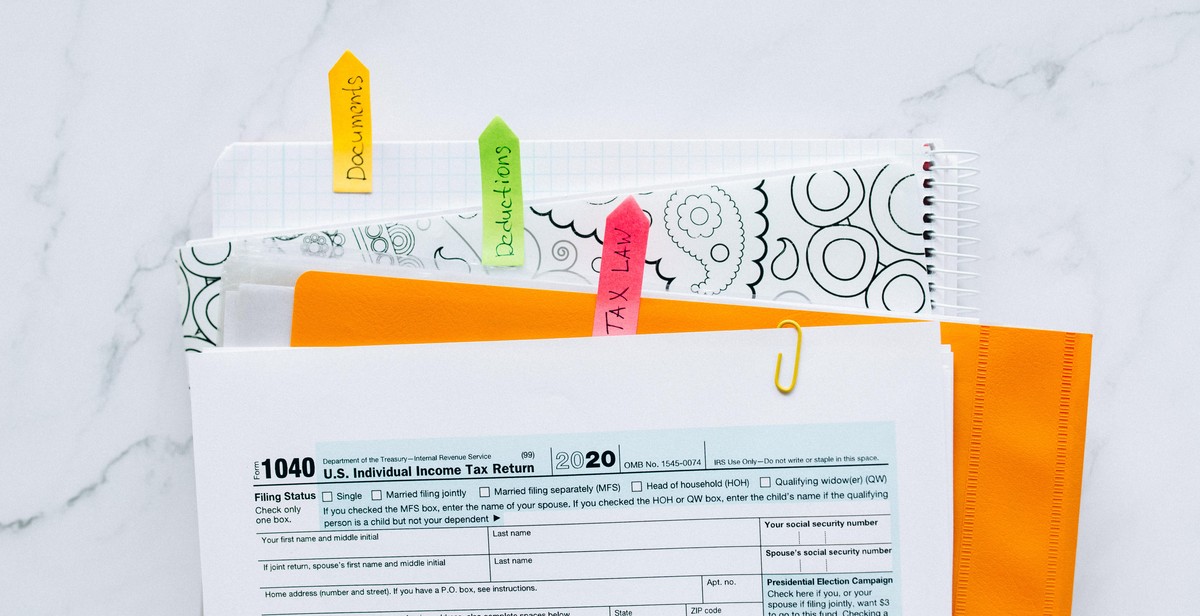How to Plan and Execute a Successful Event: Strategies for Event Management
As a professional event planner with over 10 years of experience, I have planned and executed events of all sizes and types, from corporate conferences to weddings and everything in between. Through my experience, I have learned that successful event planning requires a combination of creativity, organization, and attention to detail.
My Experience with Event Planning
My journey in event planning began when I was in college, organizing small events for my sorority and other student organizations. I quickly realized that I had a passion for event planning and decided to pursue it as a career. After completing my degree in event management, I began working for a large event planning company, where I honed my skills in event design, logistics, and vendor management.
Since then, I have started my own event planning business and have helped clients plan successful events that have exceeded their expectations. I have learned that the key to successful event planning is to stay organized, communicate effectively with clients and vendors, and be flexible enough to handle unexpected challenges.
Why You Need a Plan for Event Management
Event planning can be overwhelming, especially if you are new to the field. Without a solid plan in place, it can be easy to get bogged down in the details and lose sight of the big picture. A well-executed event requires careful planning and attention to detail, from selecting the right venue to coordinating vendors and managing guest lists.
In this article, I will share my strategies for planning and executing successful events, from setting goals and creating timelines to managing budgets and communicating effectively with clients and vendors. Whether you are planning a small business meeting or a large-scale conference, these tips will help you stay on track and ensure that your event is a success.

Step 1: Define Your Event Objectives
Before you start planning your event, it’s important to define your objectives. Event objectives can help you determine the purpose of your event, who your target audience is, and what you hope to achieve.
Why Objectives are Important
Objectives are important because they provide focus and direction for your event. They help you stay on track and ensure that you are working towards a specific goal. Objectives can also help you measure the success of your event and determine if it met your expectations.
How to Define Your Objectives
When defining your objectives, consider the following questions:
- What is the purpose of your event?
- Who is your target audience?
- What do you hope to achieve?
- What metrics will you use to measure success?
Once you have answered these questions, you can create specific, measurable, achievable, relevant, and time-bound (SMART) objectives for your event. For example, your objective could be to increase attendance by 20% compared to the previous year, or to generate $50,000 in sponsorships.
| Specific | Measurable | Achievable | Relevant | Time-bound |
|---|---|---|---|---|
| Increase attendance | By 20% compared to the previous year | With effective marketing and promotion | To generate more revenue and exposure for the event | Within the next 6 months |
| Generate sponsorships | $50,000 in total | With targeted outreach and compelling sponsorship packages | To cover event expenses and increase ROI for sponsors | Before the event date |
By defining your event objectives, you can create a clear roadmap for your event and increase the chances of success.

Step 2: Identify Your Target Audience
One of the most important steps in event management is identifying your target audience. Without a clear understanding of who your event is aimed at, you risk attracting the wrong attendees, and your event may fail to meet its objectives.
Why Knowing Your Audience is Key
Knowing your audience is key to planning and executing a successful event. Understanding who your target audience is will help you tailor your event to their needs and interests, ensuring maximum engagement and attendance. Additionally, understanding your audience will help you determine the best marketing channels to use to reach them, and the type of content that will resonate with them.
How to Identify Your Target Audience
The first step in identifying your target audience is to define the purpose of your event and the objectives you hope to achieve. Once you have a clear understanding of this, you can begin to identify the demographic, geographic, and psychographic characteristics of your target audience. This can be done through market research, surveys, and feedback from previous events.
- Demographic characteristics: age, gender, income, education, occupation
- Geographic characteristics: location, language, culture
- Psychographic characteristics: values, interests, lifestyle, personality
By identifying and understanding your target audience, you can ensure that your event meets their needs and expectations, and ultimately leads to a successful outcome.

Step 3: Choose the Right Venue
Choosing the right venue is crucial to the success of your event. It is important to consider several factors before making a final decision. Here are some factors to consider when choosing a venue:
Factors to Consider When Choosing a Venue
- Location: The location of the venue should be easily accessible to your attendees. It should also be in a safe and secure area.
- Capacity: The venue should be able to accommodate the number of attendees you are expecting.
- Amenities: The venue should have all the necessary amenities such as parking, restrooms, and catering facilities.
- Cost: The cost of the venue should fit within your budget.
- Ambiance: The ambiance of the venue should match the theme and purpose of your event.
How to Find the Perfect Venue
Once you have identified the factors to consider, the next step is to find the perfect venue. Here are some tips:
- Start your search early to ensure availability.
- Use online directories and search engines to find venues in your desired location.
- Ask for recommendations from friends, colleagues, and event planners.
- Visit the venue in person to ensure it meets your requirements.
- Negotiate the terms and conditions of the contract before signing.
| Tip: | Consider hiring an event planner to help you find the perfect venue. They have the expertise and experience to find a venue that meets your requirements and budget. |

Step 4: Create a Budget and Stick to It
One of the most crucial aspects of event planning is budgeting. Without a budget, it’s easy to overspend and end up with a financial mess. Therefore, it’s essential to create a realistic budget and stick to it throughout the event planning process.
Why Budgeting is Crucial
Budgeting helps you keep track of your expenses and ensures that you don’t spend more than you can afford. It also helps you prioritize your spending, allocate resources wisely, and make informed decisions. Moreover, having a budget gives you a clear picture of the event’s financial viability and helps you negotiate better deals with vendors and sponsors.
How to Create a Realistic Budget
To create a realistic budget, start by identifying all the expenses associated with the event. These may include venue rental, food and beverage, decor, entertainment, marketing, and staffing costs. Then, estimate the cost of each item and factor in any contingencies or unexpected expenses.
You can use a spreadsheet or budgeting software to create and track your budget. Make sure to update it regularly and keep a close eye on your expenses to avoid overspending.
Finally, be prepared to make adjustments to your budget as needed based on the event’s progress and any unforeseen circumstances that may arise.

Step 5: Plan Your Event Timeline
Creating a timeline is a crucial step in event planning. It helps you stay organized, keep track of deadlines, and ensures that everything runs smoothly on the day of the event. Here’s why a timeline is necessary:
- It provides a clear overview of key milestones and deadlines.
- It helps you allocate resources and delegate tasks effectively.
- It enables you to identify potential bottlenecks and address them in advance.
- It allows you to communicate with stakeholders and keep them informed about the progress of the event.
To create a detailed timeline, start by listing all the tasks that need to be completed before, during, and after the event. Then, assign deadlines and allocate resources for each task. You can use a spreadsheet or project management tool to keep track of your timeline. Make sure to review and update your timeline regularly to ensure that you’re on track and make adjustments as needed.
By following these tips, you can create a timeline that will help you plan and execute a successful event!

Step 6: Develop a Marketing Strategy
Marketing is an essential aspect of event planning and management. It is the process of promoting your event to your target audience and creating awareness about it. A well-developed marketing strategy can make a huge difference in the success of your event. Here are some tips on how to develop an effective marketing strategy for your event:
Why Marketing is Important
Marketing helps you to:
- Reach your target audience
- Create awareness about your event
- Generate interest and excitement
- Build credibility and trust
- Drive ticket sales
How to Develop a Marketing Strategy
Here are some steps to follow when developing a marketing strategy for your event:
- Identify your target audience
- Set marketing objectives
- Choose the right marketing channels
- Create a compelling message
- Develop a budget
- Measure and analyze results
By following these steps, you can create a marketing strategy that will help you to reach your target audience, generate interest, and drive ticket sales for your event.

Step 7: Secure Sponsors and Partners
Sponsors and partners can provide financial support, promotion, and credibility to your event. They can help cover the costs of your event and increase its exposure to a wider audience. Here are some reasons why sponsors and partners are beneficial:
- Financial support for your event
- Increased exposure to a wider audience
- Opportunities for cross-promotion
- Credibility and reputation boost
How to Secure Sponsors and Partners
To secure sponsors and partners for your event, follow these steps:
- Identify potential sponsors and partners that align with your event’s goals and target audience.
- Create a sponsorship proposal that outlines the benefits of sponsoring your event.
- Reach out to potential sponsors and partners through email, phone, or in-person meetings.
- Negotiate sponsorship and partnership terms, such as financial contributions, promotional activities, and branding opportunities.
- Sign a sponsorship or partnership agreement that outlines the terms and expectations of both parties.
Remember to follow up with your sponsors and partners regularly and provide them with updates on your event’s progress. Building strong relationships with your sponsors and partners can lead to long-term partnerships and successful events in the future.

Step 8: Hire and Train Your Team
A successful event requires a strong team of professionals who are dedicated, skilled, and passionate about delivering a memorable experience for attendees. Your team will be responsible for managing various aspects of the event, from logistics to marketing and customer service. Therefore, it’s crucial to hire the right people and provide them with adequate training and support to ensure they perform their roles effectively.
Why a Strong Team is Essential
A strong team is essential to the success of your event. They will work together to ensure everything runs smoothly, and attendees have an enjoyable experience. A team that is passionate, committed, and skilled will bring fresh ideas, creativity, and efficiency to the planning and execution of your event.
How to Hire and Train Your Team
When hiring your team, look for individuals with relevant experience, excellent communication skills, and the ability to work well under pressure. Conduct interviews, and ask for references to ensure you’re hiring the right people. Once you’ve assembled your team, provide them with adequate training, and support to ensure they understand their roles and responsibilities. Encourage open communication, collaboration, and feedback to improve team dynamics and ensure a successful event.
Pro Tip: Consider conducting team-building activities before the event to help build camaraderie and improve team performance.

Step 9: Execute Your Plan
Execution is the most important step in event management. You can have a great plan, but if you don’t execute it properly, your event will not be successful. Here are some tips for a successful execution:
Why Execution is the Most Important Step
Execution is the step where everything comes together. It’s where you put your plan into action and make sure that everything runs smoothly. Without proper execution, your event could be a disaster. That’s why it’s important to pay attention to every detail and make sure that everything is in place before the event begins.
Tips for a Successful Execution
- Communicate clearly with your team and vendors
- Assign specific tasks to each team member
- Have a backup plan in case something goes wrong
- Test all equipment and technology before the event starts
- Be prepared for unexpected changes or challenges
- Stay organized and keep track of all important details
- Be available to answer questions and handle any issues that arise
By following these tips, you can ensure that your event runs smoothly and is a success. Remember to stay calm and focused, and be prepared for anything that comes your way.

Conclusion
Planning and executing a successful event can be a daunting task, but with the right strategies, it can be a rewarding experience. From the initial planning stages to post-event evaluation, every step is crucial to the success of the event.
Key takeaways
- Start with a clear goal and objective for your event.
- Pay attention to the details, from the venue to the catering, and everything in between.
- Communicate effectively with your team, vendors, and attendees to ensure a smooth and successful event.
- Be prepared for unforeseen circumstances and have a contingency plan in place.
- Follow up with attendees and vendors after the event to gather feedback and evaluate its success.
My personal experience
As a professional event planner with over 10 years of experience, I have planned and executed successful events for various clients. I have learned that attention to detail, effective communication, and contingency planning are crucial to the success of any event.
Remember
With proper planning, execution, and evaluation, you can create a memorable and successful event that meets your goals and exceeds your expectations.
| Share: |
